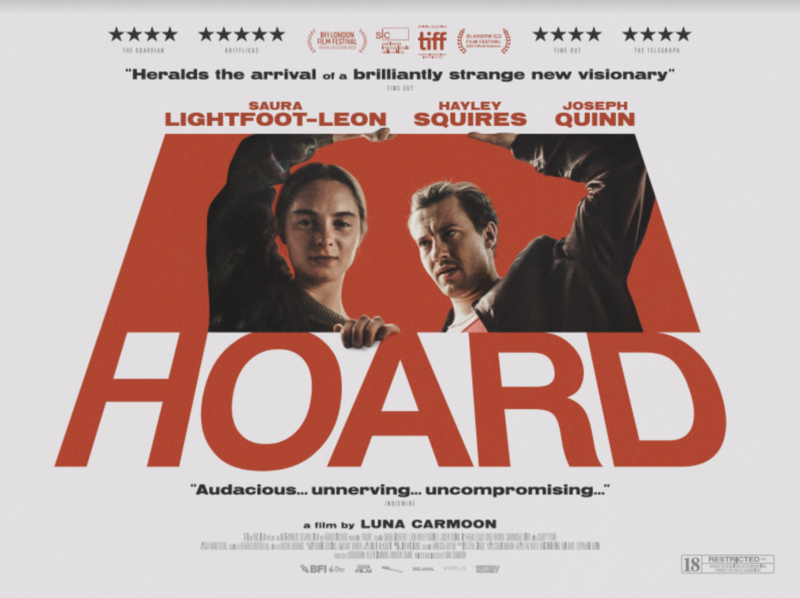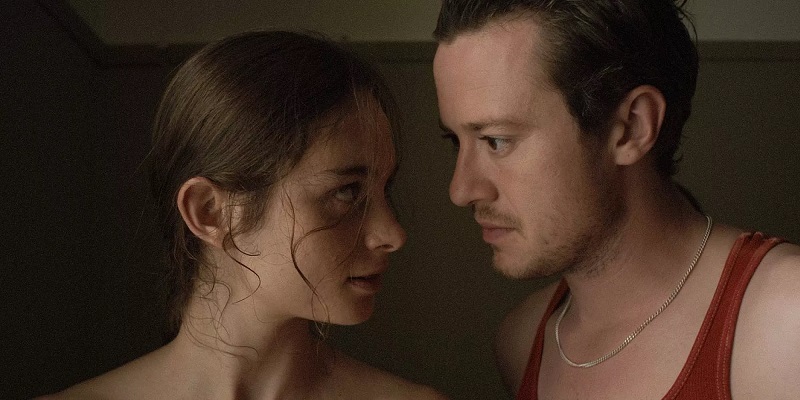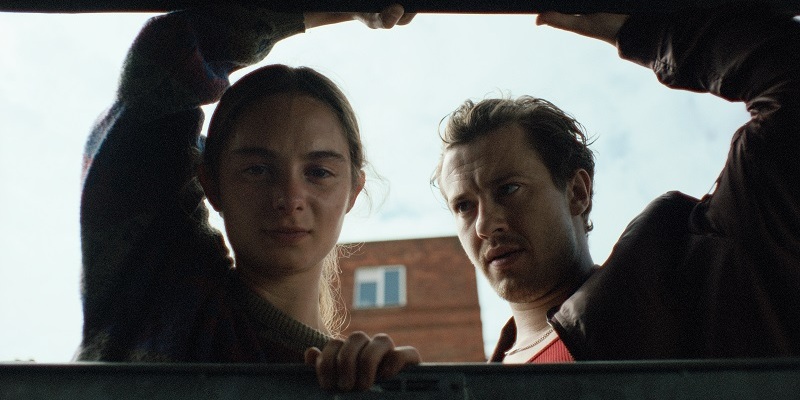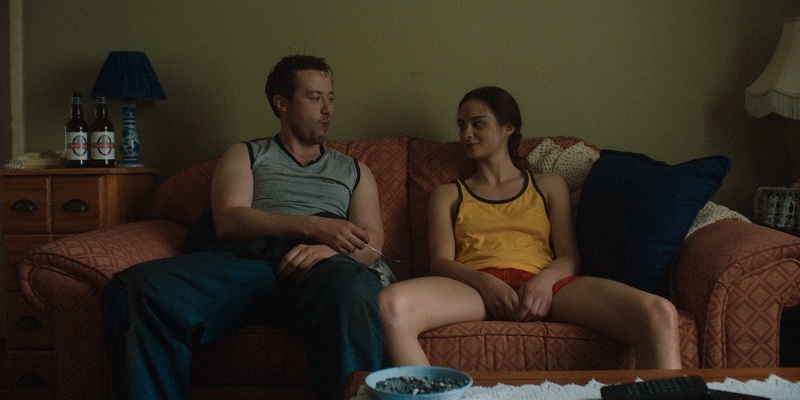
A teen who grew up with a hoarder mother regresses to her messy ways upon
the arrival of her foster mother's former charge.
Review by
Eric Hillis
Directed by: Luna Carmoon
Starring: Saura Lightfoot Leon, Joseph Quinn, Hayley Squires, Lily-Beau Leach, Samantha Spiro

British social realist movies are known for their messy protagonists, but
they don't come much messier than Maria, the focus of
writer/director Luna Carmoon's confrontational debut Hoard. As the title suggests, we're plunged into the curious psychology of the
hoarder, a once obscure neurosis that now fuels many a mean-spirited
reality show in which Feng Shui experts and neatness buffs tut tut at the
piles of crap in the homes of hoarders before cleaning them out while clad
in Hazmat outfits. Such shows end with the hoarder expressing their
gratitude and vowing not to slip back into their ways, but such upbeat
climaxes are usually followed by some solemn text explaining how they
succumbed to their compulsion within weeks of filming.
Maria, whom we initially meet as a seven-year-old in the South East
London of 1984 (played by Lily-Beau Leach), lives with her hoarder mother Cynthia (Hayley Squires) in a house filled with so much garbage that Maria struggles to get in
the front door when she gets home from school. Too young to understand
that her mother is suffering from severe mental health issues, Maria
embraces their life of rummaging through skips and finding treasure in
others' trash. She doesn't even complain when her mother presents her
with bizarre gifts, like a jar filled with chalk, or when she finds
decaying rats buried under rubbish in the living room.

In similar fashion to another recent South London drama, Charlotte
Regan's Scrapper, Maria's view of her world is often rendered with a magic realist
touch. She's a curious child, obsessed with the tactile nature of
objects, always running her hands across every thing she comes across
and sticking her arms through any gaping opening she can find.
When the film jumps forward to 1994 we find Maria, now a gangly school
leaver played by Saura Lightfoot Leon, living with her
foster mother Michelle (Samantha Spiro), having inevitably been
taken from Cynthia 10 years earlier. Maria is a clever young woman,
always quick with a witty retort, but she's directionless, with
seemingly no desire to attend college or take a job. When her rebellious
best friend Laraib (Deba Hekmat) is sent away by her strict Kurdish father to keep
her out of trouble, Maria finds a gap in her life. That gap is soon
filled by the arrival of Michael (Joseph Quinn), a handsome man
in his late twenties who was once taken in himself by Michelle. Awaiting
a council house for himself and his pregnant fiancee, Michael needs a
place to stay for a few weeks.

Red flags are immediately raised when Michael treats Maria from the off
as though she were his own sister, holding conversations with her as she
squats on the toilet and engaging in physical games that will soon boil
over into expressions of sexual longing. Michael and Maria find in one
another a reminder of the unstructured lives they were taken from as
children. In each other's company they're like two domesticated house
cats who suddenly regress to a feral state. Michael's job as a binman
means he comes home from work stinking, but while everyone else covers
their nose, Maria revels in his putrid stench, a sensual reminder of her
childhood. Soon Maria is taking Michael on scavenging runs, filling her
bedroom with piles of trash and hiding rubbish around the rest of the
home.
Carmoon has said the film is inspired by her hoarder grandmother, whom
we see in home movie footage over the closing credits (Squires' resemblance is remarkable). Her film is so
specific in how it draws its unique world that it could only have come
from someone familiar with the details she's presenting. Carmoon refuses
to hold the viewer's hand, never commenting on Maria's neurosis, merely
presenting it in all its filthy squalor. The same goes for her
relationship with the older Michael. Rather than wagging a knowing adult
finger, Carmoon emphasises Maria's excitement. We can be thankful that
smell-o-vision never caught on, as Hoard would no doubt be impossible to endure. There's something oddly
specific to a British '80s childhood about wallowing in messiness.
Children's game shows of the era always seemed to involve people getting
covered in all sorts of slime and ooze, and this is echoed in the kinky
games played by Maria and Michael, who trade bodily fluids with wild
abandon.

At times however Carmoon succumbs to the temptations of a first time
filmmaker, and not everything works. As with Scrapper, the magic realist asides distract from the grittiness of the drama
rather than complement it. The voiceover from Maria which bookends the
film is unnaturally flowery. Maria's obsession with the arthouse
favourite The Tin Drum is similarly incongruous. But there's a ton of evidence here to
suggest Carmoon is an exciting talent, as indeed are her two young
leads. Hoard is a movie that teems with life, in all its messiness.

Hoard is on MUBI UK now.

